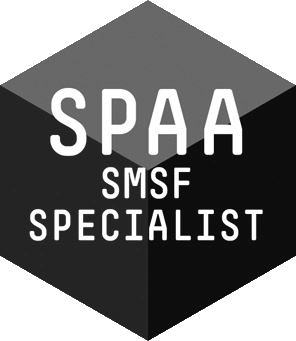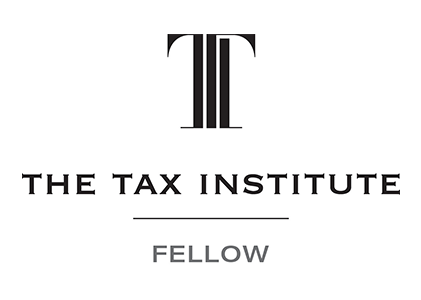Freelancing in Australia comes with great perks — flexibility, independence, and control over your work. But it also means managing your own taxes and superannuation, which can be overwhelming if you’re not prepared (or you’re more of a creative than a numbers person!).
Whether you’re a full-time sole trader or freelancing as a side hustle, here are essential tax tips tailored for Australian freelancers to help you stay compliant and maximise your deductions.
1. Know Your Tax Responsibilities as a Freelancer
In Australia, if you work for yourself — whether part-time or full-time — you're generally considered a sole trader. This means:
- You’ll need to register for an ABN (Australian Business Number)
- You’re responsible for reporting your income to the ATO
- You’ll pay income tax based on your total taxable income
If you earn $75,000 or more per year, you must also register for GST (Goods and Services Tax) and charge GST on your invoices.
2. Keep Accurate Records of All Income
You must declare all income you receive, regardless of whether it comes with a tax invoice or not. This includes:
- Bank transfers
- Cash payments
- Platform income (like from Upwork, Fiverr, AirTasker, etc.)
Online accounting platforms such as:
- Xero
- MYOB
- Rounded (popular with Aussie freelancers)
- Or even a well-structured spreadsheet
…can help you stay organised.
3. Claim All Eligible Deductions
You can reduce your taxable income by claiming legitimate business expenses. Common deductible items include:
- Home office costs (portion of rent, electricity, internet – use either the fixed rate method or actual cost method)
- Phone and internet bills
- Computer equipment and software
- Business-related travel
- Professional development and training
- Marketing and promotional activities
- Professional subscriptions and union fees
- Professional development/education
Important: Only claim the business portion of these costs. The ATO expects reasonable apportioning, especially for items such as utilities and rent.
4. Don’t Forget Superannuation Contributions
Unlike employees, as a freelancer no-one is paying into your super account automatically. But contributing to your own super fund is highly recommended — and you may be eligible for tax deductions on these contributions.
You can contribute to a fund of your choice and then claim the amount as a deduction on your tax return using a Notice of Intent to Claim form.
5. Pay Quarterly BAS if Registered for GST
If you're registered for GST, you'll likely need to lodge a Business Activity Statement (BAS) every quarter. This includes reporting:
- GST collected
- GST paid on business expenses (you can claim this back)
- PAYG instalments (if applicable)
Missing BAS deadlines can result in penalties, so set calendar reminders or automate it via accounting software.
6. Set Aside Money for Tax and GST
Freelancers don’t get tax withheld automatically, so it’s up to you to plan ahead. A good rule of thumb is to set aside:
- 25–30% of your income for tax
- An additional 10% if you’re registered for GST
Open a separate business bank account to keep this money aside. It’ll save you from tax-time panic.
7. Keep Digital Records and Receipts
You must keep your tax records for at least 5 years in Australia. This includes:
- Invoices
- Receipts
- Bank statements
- BAS lodgements
- Contracts and quotes
The ATO accepts digital copies, so use tools like:
- Google Drive or Dropbox
- Receipt scanning apps like Expensify or Hubdoc
8. Prepay some expenses this year to reduce taxes
If you have a healthy cashflow, you might choose to prepay some of your expenses for the following year. By doing so you can combine the benefit of bringing forward the tax deduction AND (usually) getting a discount for paying your supplier in advance. There will always be a small business owner or service provider keen to boost their sales this year – just as you’re keen to reduce your tax!
Items you can prepay might be:
- Business loans (prepay on fixed rates 12 months in advance)
- Office and equipment lease payments
- Business insurance
- Business related subscriptions
- Business travel, seminars and conference bookings
- Telephone and IT services
9. Consider Working with a Tax Agent or Accountant
Australia’s tax laws change frequently, and freelance tax situations can get complex quickly. A registered tax agent can:
- Help you claim every deduction legally available
- Avoid ATO penalties or audits
- Set you up with a smart tax-saving structure (like moving from sole trader to a company or trust if needed)
Plus, tax agent fees are tax-deductible the following year. It’s worth paying the professional fee for peace of mind at tax time.
Final Thoughts
Being a freelancer in Australia gives you incredible freedom — but it also requires a proactive approach to your finances. By staying on top of your taxes, keeping good records, and claiming what you're entitled to, you can boost your bottom line and run your business with confidence.
Need Help?
Check out the ATO’s deductions for sole traders and speak to one of our registered tax agents at your nearest Tax Store office to get personalised advice that fits your freelance setup.
Our Management Credentials




